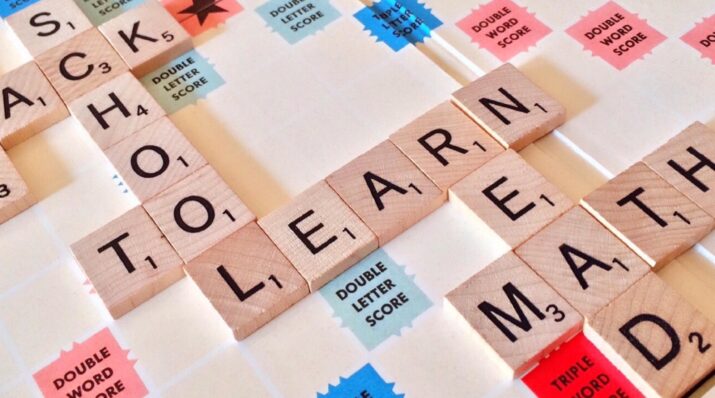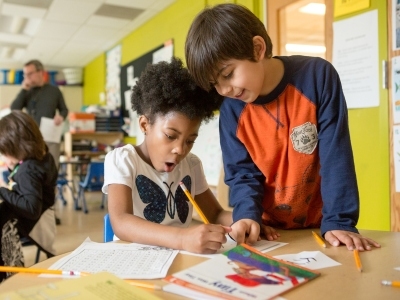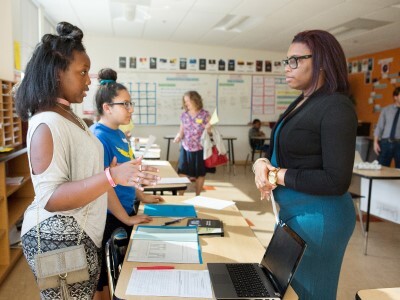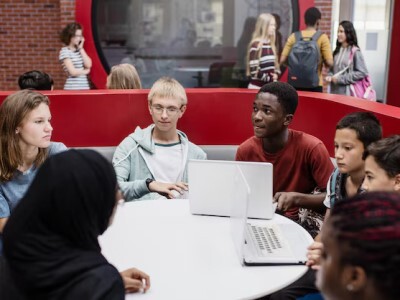Schrödinger's cat in Personalized Learning: Providing Grade Level and Individual Level Instruction
Topics

We’ve all had the experience of truly purposeful, authentic learning and know how valuable it is. Educators are taking the best of what we know about learning, student support, effective instruction, and interpersonal skill-building to completely reimagine schools so that students experience that kind of purposeful learning all day, every day.
Personalized learning at Distinctive Schools means simultaneously providing access to rigorous grade-level instruction and meeting students where they are. Students need both.
Distinctive Schools has been implementing a next generation model of learning that embraces personalized learning. In our academic model, we set high expectations for students to become curious, engaged learners who can thrive in college, career, and life and will be able to adapt and succeed in new and unknown contexts. As a network that has adopted the MyWays framework, we prepare our students not only with strong content knowledge but also through instilling strong habits of success like the ability to work well in groups, take on appropriate responsibilities, and set meaningful goals.
As the leaders of personalized learning and curriculum and instruction, our work is intertwined and requires consistent and disciplined collaboration. This intersection creates a central tension that we constantly grapple with. We know that strong mastery of grade-level content knowledge is key for achievement. Grade-level content mastery is also important due to the external reality of high stakes testing. At the same time, however, our belief in personalized learning means that we aim to meet all students where they are academically, and we recognize that students come with a diverse range of needs and readiness. Our joint challenge becomes finding ways to simultaneously provide access to rigorous grade-level instruction while also meeting students where they are. It’s a “yes...and” scenario. Students need both.
Structures to Meet Both Aims
We create time and space for teachers to engage all students in learning grade-level core curriculum and content. Every student has true access to grade-level material to combat the achievement gap. Each student is given time to collaborate with grade-level peers on academically rigorous and integrated content. Teachers facilitate learning opportunities (scaffolded when necessary) which allow students to access high-level concepts and problem solving within their grade level.
A common misconception of personalized learning is that learning is dominantly independent. This is not the case. Personalized learning means providing each student with the best, most appropriate, learning experience possible for a given expectation. This includes a range of approaches, including independent, collaborative, and even whole group instruction. Distinctive Schools is a personalized learning network, however, not all components of our academic model are new. We are ever-conscious of the modes in which we help our students learn and grow, and we continually adapt tried and true best practices to evolve with the needs of our students. Five of the structures we use are detailed below.
WIN Time
Dedicated time set aside each day is allocated for targeted practice in discrete skills and foundational concepts if necessary. The “What I Need” part of the day allows our students to strengthen their skills through adaptive online programs and highly scaffolded small-group instruction. WIN also personalizes support for students' needs within similar skills and concepts. While students may receive out-of-grade level support during this time, WIN is intentionally NOT for tracking. Regular formative assessment and program data provide opportunities for frequent reliable data analysis and regrouping.
Low-Floor /High-Ceiling Math Tasks
Intentionally planned Low-Floor/High-Ceiling math tasks (inspired by Jo Boaler from Stanford) are learning experiences that provide intellectual access to every student based on his/her readiness. All members of the class can participate meaningfully in the complex tasks because a variety of approaches and levels of inquiry are honored. In theory, 2nd graders and 7th graders can tackle the same task and get from it what they need. These complex learning tasks meet students’ various academic levels by providing a wide range of entry points and on-ramps for different levels and manners of thinking through choice and challenge. Simultaneously, students learn from one another through rich, peer-to-peer discussion and math talks. We use YouCubed’s LFHC math tasks to create opportunities for whole group work as well as small group and individual learning time. Such structures ensure that our model provides all students with access to challenging and engaging material and simultaneously safeguards us from using personalized learning as a new and disguised way to track students.
Balanced Literacy
Balanced literacy is not new; it’s best practice. And, if used expertly, balanced literacy becomes the perfect way to personalize learning. Shared reading and reading aloud provide students with access to grade-level and above grade-level text. Guided reading provides time for students to interact with text with the right levels of support. And independent reading provides students with opportunities to pursue areas of interest with right fit books, which promotes love for reading and strengthens students’ literacy stamina and agency.
Project Time
Through our partnership with Summit Learning, our middle school students work on projects that are multi-faceted and provide experiences that represent those in the workplace. How students engage in their project work varies from day to day. A variety of collaborative group work, whole class discussions and debates, and independent work time can be found in classrooms throughout our network depending on what’s most appropriate at a given point in time. Through their project time, students construct their knowledge to demonstrate mastery of cognitive skills. Projects enable students to develop higher level thinking and life skills, such as critical thinking, communication, negotiation, and problem solving.
Mentorship
Adult mentorship is central to student ownership and personalization of learning. Through one on one conversations, teachers are able to better understand students as individuals and are better equipped to modify lessons and structures to best meet their needs. These coaching sessions provide students with authentic opportunities to develop critical skills like communication, advocacy, goal setting, and reflection.
At Distinctive Schools, as we aim to support all of our students on their journeys toward successful futures, we recognize the work has just begun. We continue to refine our personalized learning model, and our systems and structures are ever-evolving as we learn more about how to best provide rigorous grade-level instruction while also meeting each child at his/her own level.




